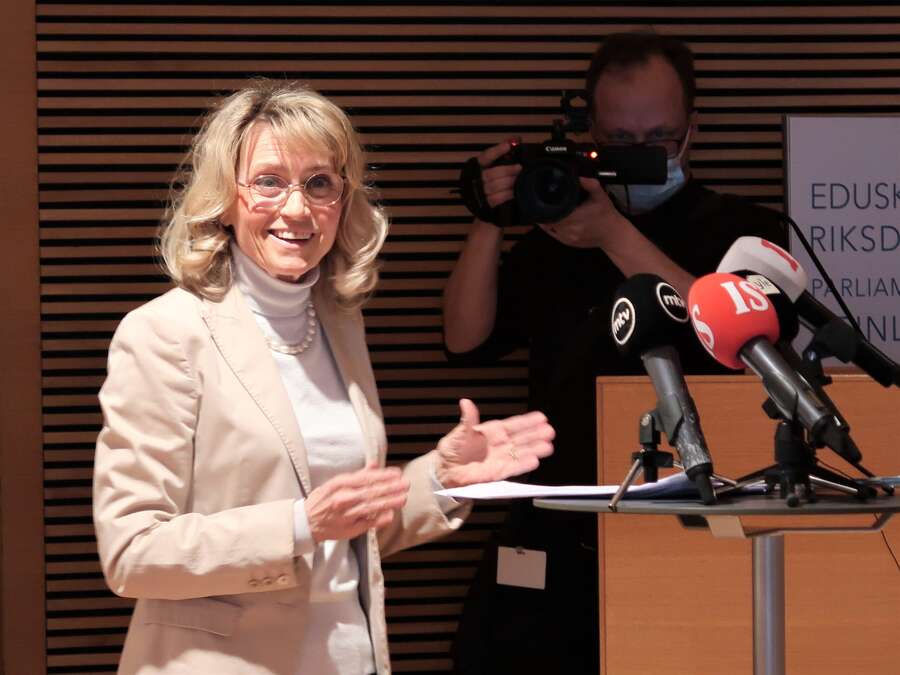Finnish MP Upsets LGBTQ Community
Finnish MP Päivi Räsänen has upset the LGBTQ community by making a number of public statements that have been interpreted as being homophobic.

Developmental Disorder Letter 2004
In 2004, she wrote an online opinion letter in which she described homosexuality as a “developmental disorder.”
Tweet 2019
In 2019, she tweeted a photo of a Bible verse that condemned homosexuality, and she also said in a radio interview that she believed homosexuality was a sin.
Räsänen’s comments have been condemned by the LGBTQ community and by human rights groups. They argue that her statements are harmful and discriminatory, and that they contribute to a climate of intolerance towards LGBTQ people in Finland.
Räsänen has defended her comments, saying that she is simply expressing her religious beliefs. However, the LGBTQ community and human rights groups argue that her beliefs do not justify the use of harmful and discriminatory language.
Acquitted of hate speech 2022
In 2022, Räsänen was acquitted of hate speech charges by a Finnish court. The court ruled that her comments were protected by freedom of speech, but the decision has been criticized by the LGBTQ community and human rights groups.
The case of Päivi Räsänen has highlighted the ongoing challenges faced by the LGBTQ community in Finland. Despite progress in recent years, there is still a significant amount of homophobia and discrimination in the country.
The case has also raised important questions about the limits of freedom of speech and the role of religion in public discourse.
Striking a Balance between Faith and Offense
Religion has always been a significant part of human civilization, providing guidance, solace, and a sense of purpose to billions of individuals worldwide. However, as societies become increasingly diverse and interconnected, the role of religion in public discourse becomes a topic of scrutiny.
While religious public statements and personal views can foster dialogue and understanding, they often have the unintended consequence of causing offense, hindering the pursuit of unity and mutual respect.
The Power of Religion in Public Discourse
Religion holds a unique position in public discourse due to its ability to shape personal values, moral frameworks, and worldviews. It can provide individuals with a sense of identity and community, instilling a desire to express their beliefs publicly. As such, it is natural for religious individuals and leaders to engage in public discussions, sharing their perspectives on social issues, ethics, and governance.
The Potential for Offense
When religious public statements and personal views fail to consider the diversity of beliefs and values present in society, they can inadvertently offend and alienate those who hold different perspectives.
Religion, by its nature, is deeply personal, and what may be a guiding principle for one person might be viewed as controversial or discriminatory by another.
Winning Hearts Through Dialogue
To ensure a healthy and inclusive public discourse, it is essential for religious individuals and leaders to strike a balance between expressing their beliefs and respecting the diverse tapestry of society.
Genuine dialogue, founded on empathy, respect, and a willingness to listen, can bridge gaps and foster understanding between individuals with different religious or non-religious backgrounds.
Religious teachings often emphasize values such as compassion, forgiveness, and love for one’s neighbor. By embodying these principles in public discourse, religious followers can lead by example, demonstrating the positive impact their faith can have on society.
It is through acts of kindness, humility, and respect that people are more likely to be won over, rather than through forceful or divisive rhetoric.
Conclusion
Religion plays a vital role in the lives of many individuals, providing a source of meaning and guidance. However, in the context of public discourse, religious public statements and personal views can unintentionally offend rather than win hearts.
Striking a balance between expressing one’s faith and respecting the diversity of beliefs is crucial for fostering understanding and unity.
By embodying the core values of their religious teachings, individuals can contribute to a more inclusive public discourse, where dialogue and mutual respect triumph over offense and division.
